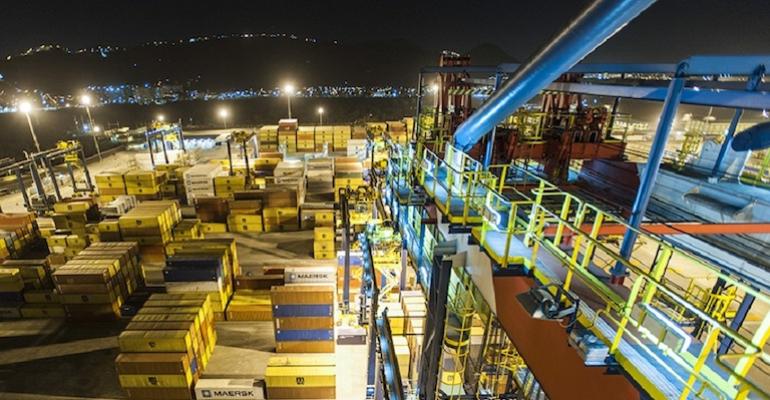BTP was reported to have been unable to receive two scheduled container ships for operation last week. BTP is a joint venture between APM Terminals, part of AP Moller Maersk, and MSC’s Terminal Investment’s Ltd (TIL).
Both vessels attempted to divert to the other two terminals, Santos Brasil and DP World Santos, but they also could not accommodate the ships, it said.
According to operators, this situation highlights that the port no longer has room for contingencies, added the Brazilian media.
The OECD (Organisation for Economic Co-operation and Development) suggests that the terminal’s occupancy limit to maintain efficiency is up to 70% (yard) and up to 65% (berth).
Expansion plans for the port, including the auction of a new terminal in Santos scheduled for 2022, were halted during the Lula administration.
Port Minister Márcio França (PSB) intends to re-evaluate the need to keep the port under state control and the necessary size for the expansion required to prevent the terminal from losing cargo to neighbouring ports.
Alongside the Santos Port Authority, the state-owned entity overseeing the largest port in Latin America, França has said the port still has the capacity to handle containers.
According to Datamar News, “data from the Santos Port Authority itself shows that since 2019, the port has been operating at its occupancy limit (70% of installed capacity). In that year, 4.2 million teu were handled, the operational limit.”
This year, cargo volumes projections for Santos of 5.3 million teu are expected to exceed the operational capacity of 4 million teu. This amounts to 70% of installed capacity - 5.7 million teu - a threshold beyond which operations become inefficient, according to the OECD.
Private operators argue for full privatisation to expedite investments
Copyright © 2024. All rights reserved. Seatrade, a trading name of Informa Markets (UK) Limited.
Add Seatrade Maritime News to your Google News feed.  |

